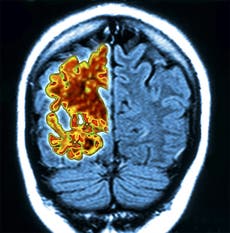The Only Way is Ethics: The line between accuracy and sensationalism in a headline can be in the mind of the reader
Should we have run a front-page proclaiming 'Alzheimer’s may be a transmissible infection'?


Accuracy is the No 1 requirement of good journalism. And that is never more true than when it comes to reporting on matters of medical science.
The media’s failure properly to scrutinise the research of Andrew Wakefield is well-known and has had a long-lasting impact. Wakefield’s claim of a link between administration of the measles, mumps and rubella vaccine and the onset of bowel disease and autism caused widespread anxiety. Newspapers were quick to repeat his professed findings – and much too slow to realise that the research was deeply flawed, not to mention ethically compromised.
On the plus side, if journalism initially gave Wakefield much too much credence, it was also by the work of journalists that the extent of the research’s failings were brought to public attention. But the lesson is clear: when a scientific study releases startling results, the media should approach with caution from the outset.
This doesn’t mean that newspapers should feel completely constrained though. This week The Independent reported the findings of a small-scale study which indicated that Alzheimer’s may be transmissible from one person to another via certain medical procedures. We were careful to emphasise that there was no suggestion of Alzheimer’s being contagious and noted that, with the research cohort being only eight subjects strong, scientists were calling for more research before drawing firm conclusions.
Our report was cautious and carried the proper caveats. But with that in mind, should we have run a front-page headline proclaiming “Alzheimer’s may be a transmissible infection”? A few readers thought it was unduly sensational, though it seemed to me a fair and accurate summary of the study’s conclusion – and of course a headline can never tell you the whole story.
Some people – usually those who claim not to believe what they read in the papers – seem inherently to regard a front-page headline as deliberate sensationalism, and to imagine that important but complex stories should be relegated to inside pages lest a passing punter should be alarmed by a report they haven’t read. This is a form of intellectual snobbery: a view that “less-thoughtful” individuals shouldn’t be exposed to dramatic headlines because they are bound to misunderstand them.
Of course headlines have the capacity to mislead – but we shouldn’t assume that most people don’t have the ability to see beyond them. Otherwise we might as well turn the clock back a century and fill the front page with classified adverts.
Don’t discount the clerics on principle
Just as we should take care to scrutinise the claims of science, so we should analyse with due rigour the views of our leaders, be they political, business or religious. An editorial in last Monday’s Independent noted that the Archbishop of Canterbury and other Church top brass had made a public intervention in the debate over assisted dying. Bearing in mind that most people do not attend any form of worship, the editorial suggested that no weight should be attached to the views those religious figures set forth.
Yet as a number of letter-writers pointed out, our opposition to the intervention seemed largely to be based on a point of principle, rather than its precise merits. The Independent’s long-held editorial position is that the formal link between Church and state should be broken. That doesn’t mean bishops’ views should be dismissed out of hand.
Will Gore is deputy managing editor of ‘The Independent’, ‘i’, ‘The Independent on Sunday’, and the ‘Evening Standard’
Twitter: @willjgore




Join our commenting forum
Join thought-provoking conversations, follow other Independent readers and see their replies